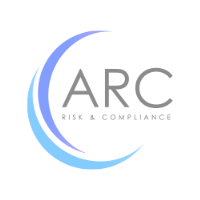This webinar will discuss the current “industry best practice” for the alert/case management investigation process, and any guidance from the regulators. The instructor will cover a sample methodology meant to demonstrate what your institution may be doing, and opportunities to improve it. Participants will understand about the rules/scenarios thresholds that are leading to alerts/cases. It will help you answer
- What is your escalation process?
- What policies guide your investigation process?
- What policies dictate when you file an alert/case?
Why Should You Attend:
The art and science of Alert/Case Investigation has matured along with other elements of BSA/AML/OFAC Compliance, spurred on by ever more stringent regulations and stricter adherence to the letter and spirit of the rules by examiners. As with many other of the elements of BSA Compliance, there is little official guidance. OFAC has provided some guidance as to how to clear and manage sanctions “hits.”
In this training session, we will explore the components of a loosely defined “industry practice” alert and case clearing methodology. What are the corresponding quality control issues and the importance of an alert/case management system? It will help you answer the listed below questions:
- What makes good investigation?
- What is enough to determine the difference between a false positive and true positive?
- What constitutes a practical and proper escalation process?
- Who decides when the case becomes a matter for filing?
- At what point do excessive numbers of false positives lead to revision of rules/scenarios thresholds?
Areas Covered in the Webinar:
- The industry standard for the investigation process.
- Alert and case clearing methodology.
- The quality control issues that can arise.
- The importance of an alert/case management system.
- Determining the difference between a false positive and a true positive.
- The escalation process – what is practical and proper and at what point you decide to file.
- Determining what might be excessive false positives for your institution and how to “fix” that.
Who Will Benefit:
- BSA/AML Officers
- Compliance Officers
- Chief Compliance Officers
- Sanctions Officers
- AML Analysts
- Risk Officers
- Chief Risk Officers
- Legal Departments
- Risk Managers
- CEO/Presidents
- Banks
- Broker-Dealers
- Money Services Businesses
- Other non-bank financial institutions
About the instructor:
 William Schlameuss has over 20 years’ experience in regulatory compliance, including BSA/AML/OFAC. He has worked with a wide range of US branches of major foreign banking organizations from all continents, both as chief compliance officer and compliance consultant. He has a prior background in IT as manager and implementer of core banking and payment systems, as well as compliance-related systems.
William Schlameuss has over 20 years’ experience in regulatory compliance, including BSA/AML/OFAC. He has worked with a wide range of US branches of major foreign banking organizations from all continents, both as chief compliance officer and compliance consultant. He has a prior background in IT as manager and implementer of core banking and payment systems, as well as compliance-related systems.
Mr. Schlameuss has extensive experience with State and Federal Banking regulators in examination preparation, assistance and response, including assistance in the remediation of written agreements for clients.
As a project manager Mr. Schlameuss has led BSA/AML audits, BSA/OFAC Model Validations, remediation efforts of BSA audit issues, and BSA/OFAC look-backs for international banks, both self-imposed and directed by regulatory authorities. Model Validations included Prime, FCRM, Patriot Officer, Actimize, and eGIFTS.
He has conducted the Annual 3130 Supervisory Reviews for Broker-Dealers of the US branches of major FBOs. Mr. Schlameuss is also a member of the Association of International Bank Auditors and the International Bank Regulatory Compliance Committee.


